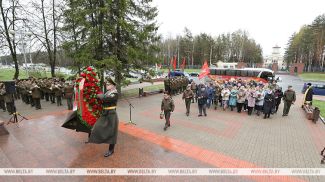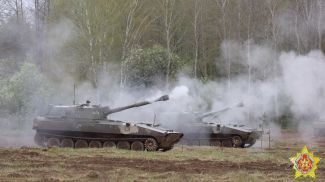MINSK, 20 April (BelTA) – The concept of the new Belarus-Russian Union State program on social security of people living in the Chernobyl-affected territories for 2019-2022 has been worked out, Valery Bokhonko, the head of the office for rehabilitation of affected territories at the Chernobyl Department of the Belarusian Emergencies Ministry, told the media on 20 April, BelTA has learned.
“The concept of the Belarus-Russian Union State program for 2019-2022 is ready. Now it is undergoing the review procedures. It pays much attention to the social security and provision of healthcare services, a set of of protective measures in the population centers where the radiation level may exceed the permissible levels, the support of the radiation control system, the return of the contaminated lands back into economic use taking into account the economic needs and radiation security requirements,” said Valery Bokhonko.
Valery Bokhonko remarked that Belarus seeks to further decrease the risks of adverse effects on the health of people, to maintain the level of protective measures, to promote the rehabilitation and social and economic development of the Chernobyl-affected territories meeting the radiation security requirements. “Belarus has achieved a lot of successes in mitigating the Chernobyl impact due to the wise and balanced policy. More than 19,000 hectares of land, which is 7% of all contaminated territories, was brought back into agricultural use,” stated the head of the department.
Valery Bokhonko said that the Polesye State Radiation-Ecological Reserve, where one-third of the radioactive fall-out on Belarus settled, is installing the automatic radiation and fire control system. Fire observation towers will be equipped with the CCTV system, automatic smoke sensors, and highly-sensitive gamma-radiation sensors that will pass all the data to the operations center of the reserve. “The implementation of this system will help observe the changes in the radiation levels and the emergence of any smoke hazards in the reserve in real time 24/7,” stated Valery Bokhonko.











